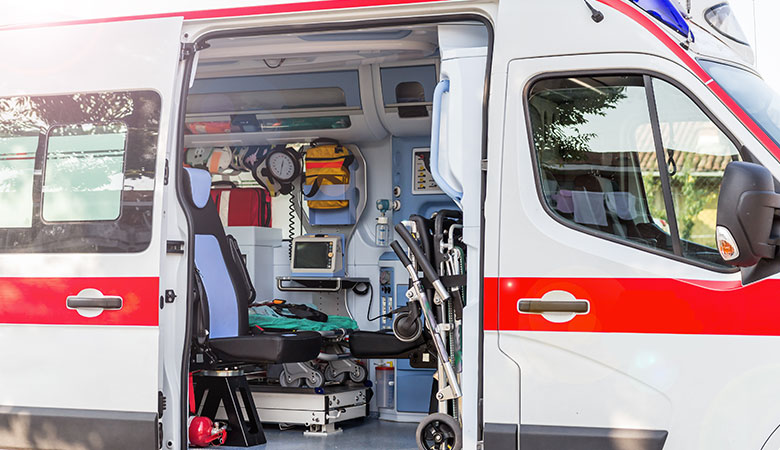Every second counts when they feel like hours. It’s not just about being in a hurry to get to the hospital on time; it’s also about being ready, being attentive, and having the correct support when you need it most. A lot of people think it’s easy: you phone for help when you’re sick and get to the hospital. But the path from anguish to care isn’t always as clear as it looks.
A lot of people don’t know that what happens before you get to the hospital can affect what happens later. If you don’t get there on time, you can miss treatment windows, have to wait longer to heal, or even have your life changed. It’s not just for emergencies; you also need reliable transportation for normal treatments, scheduled therapy, and follow-up appointments.
More Than Just an Ambulance
When people think of medical transportation, sirens come to mind. But not every situation is an emergency. Many patients need safe, timely transport for dialysis, chemotherapy, physical therapy, or follow-up appointments. Others may require wheelchair-accessible vehicles or assistance getting from their front door to the clinic. These needs are real, frequent, and often overlooked.
Medical transportation is a bridge. It connects people to healing spaces. It ensures no one misses vital care due to a lack of a ride. It’s quiet support behind loud emergencies, and gentle guidance during regular health routines.
The Clock Doesn’t Wait
Timing isn’t just important. It’s everything. Hospitals run on tight schedules. Surgeons have windows for procedures. Scans and lab appointments are slotted. Missing a slot often means waiting days—or weeks – for the next one.
Some consequences of late arrival:
Treatment delays: A missed appointment may push urgent care further down the line.
Wasted resources: Hospitals prepare staff, rooms, and equipment in advance.
Increased stress: Patients already under strain now carry the burden of missed care.
And yet, many patients rely on rides that are unpredictable, late, or not suited to their health needs. Transportation becomes another hurdle in an already complex health journey.
Who Needs Medical Transportation?
It’s not always the person you’d expect. Medical transport supports more than those in emergencies. It also serves:
Seniors living alone without nearby family support.
Patients recovering from surgery who cannot drive themselves.
People undergoing frequent treatments like dialysis or chemotherapy.
Individuals with mobility issues, including wheelchair users or those with chronic pain.
Patients with mental health conditions who may need supervised or supportive transport.
In short, it’s for anyone who needs to reach a medical facility safely and reliably – but lacks the means to do so alone.
The Unseen Struggles Behind Every Missed Appointment
Every missed medical appointment tells a story. Often, that story involves a ride that never came. Or one that arrived too late. Or a vehicle too uncomfortable for a fragile body. Sometimes, it’s a driver unfamiliar with the needs of someone who can’t walk without assistance.
The result? Discomfort, fear, sometimes injury. But always lost time and missed care.
And while family members try to help, they can’t always leave work, drive long distances, or manage complex medical needs. Not everyone has someone on call. And no one should have to choose between keeping their job and caring for a loved one.
The Human Side of the Ride
Behind every transport request is a person. Someone worried about a diagnosis. Someone is afraid of treatment. Someone is exhausted from years of managing their health. What they need isn’t just a vehicle—it’s understanding.
Compassion matters. Drivers who wait a little longer. Vehicles that feel safe. A team that understands this isn’t just a ride – it’s a lifeline. People remember how they were treated on the way to care. That feeling travels with them into the hospital, into the doctor’s office, into recovery.
Choosing the Right Path to Care
It’s not about the brand or the size of the van. It’s about reliability, comfort, and support. People value:
Punctuality: Arriving on time means receiving care on time.
Safety: Vehicles suited for medical needs make the ride smoother.
Trained drivers: Knowing how to assist without causing discomfort is vital.
Clear communication: Updates on arrival times reduce anxiety.
Flexibility: Understanding that medical appointments can run long.
These qualities don’t just make a ride easier – they make care accessible.
Why It All Matters More Than You Think
Reaching the hospital or clinic is more than a trip across town. It’s part of a bigger story—of survival, healing, and hope. Reliable medical transportation helps reduce missed appointments, improves treatment outcomes, and gives people one less thing to worry about when they’re already carrying enough.
It also respects people’s dignity. No one should feel stranded when they need care. No one should sit at home in pain, afraid to ask for help. And no one should miss a chance at recovery because of something as basic as a ride.
How to Stay Ahead
Being prepared makes all the difference. Whether for yourself or someone you care about, here’s what helps:
Plan transport before the appointment, not after.
Know the type of vehicle and support needed.
Choose services familiar with medical schedules.
Confirm pickup times in advance.
Keep contact numbers handy in case of changes.
When health is involved, guessing is risky. Certainty is powerful.
Final Thoughts
Getting to the hospital on time is a quiet but crucial part of staying healthy. It’s not always urgent. But it’s always important. And while many overlook this part of the healthcare journey, it can shape everything that follows.
Companies like My Medical Ride Transit Services make this journey smoother. They understand the difference a dependable ride can make – whether for a routine check-up or a life-changing procedure. They know it’s not just transportation. It’s part of healing.
Your road to care should never be uncertain. With the right support, every mile can feel a little easier. Every moment, a little calmer. And every patient is a little safer.
